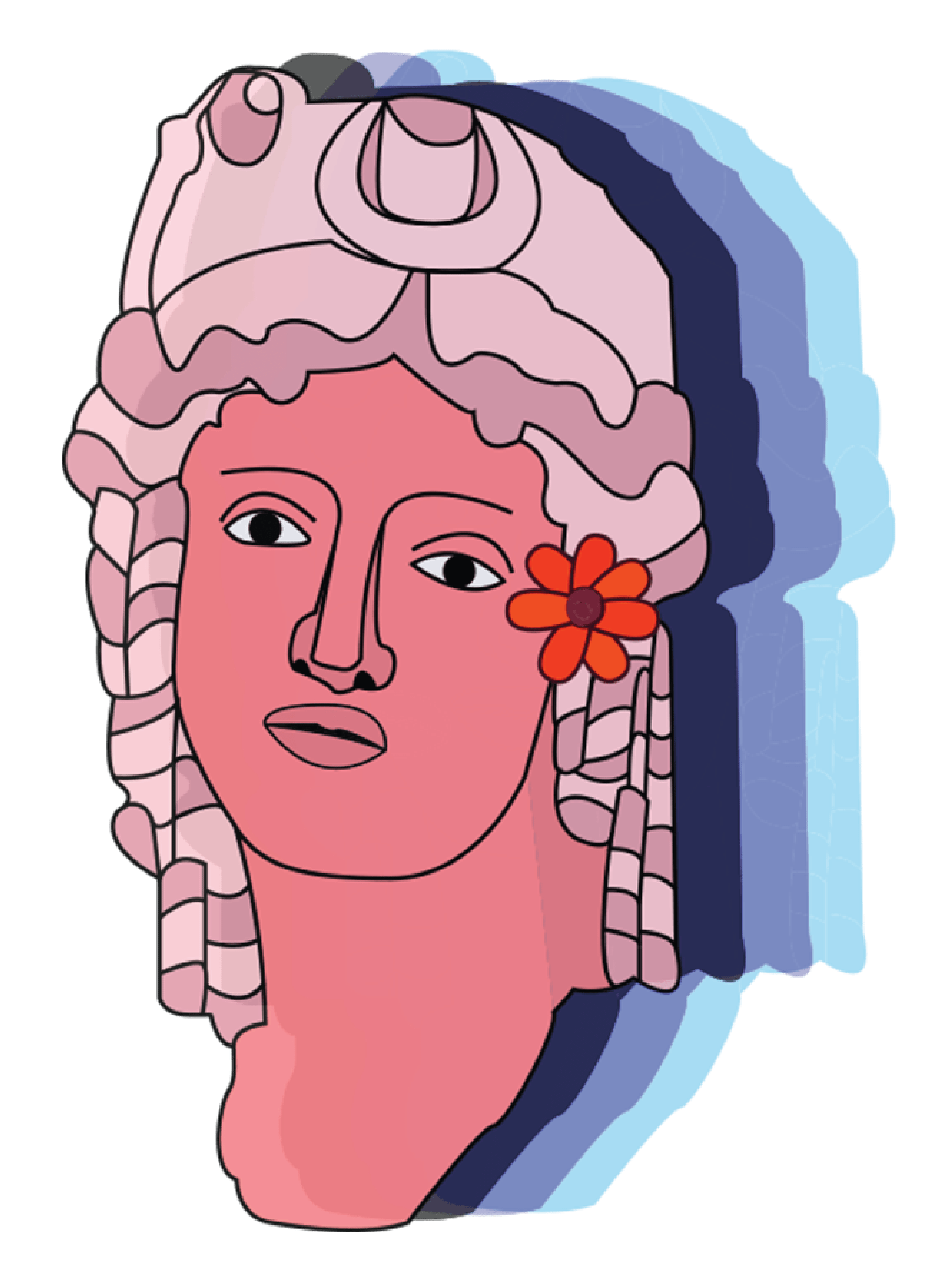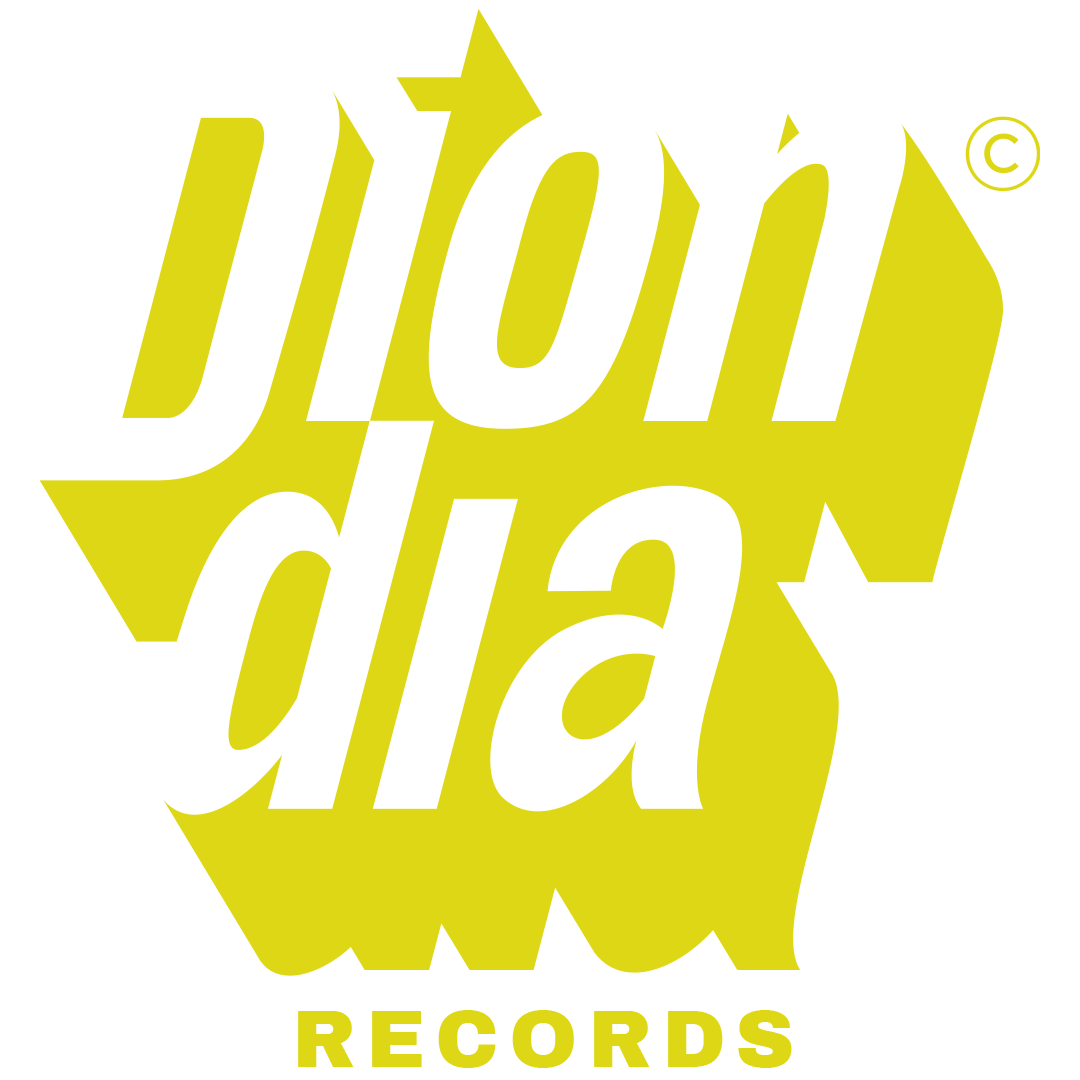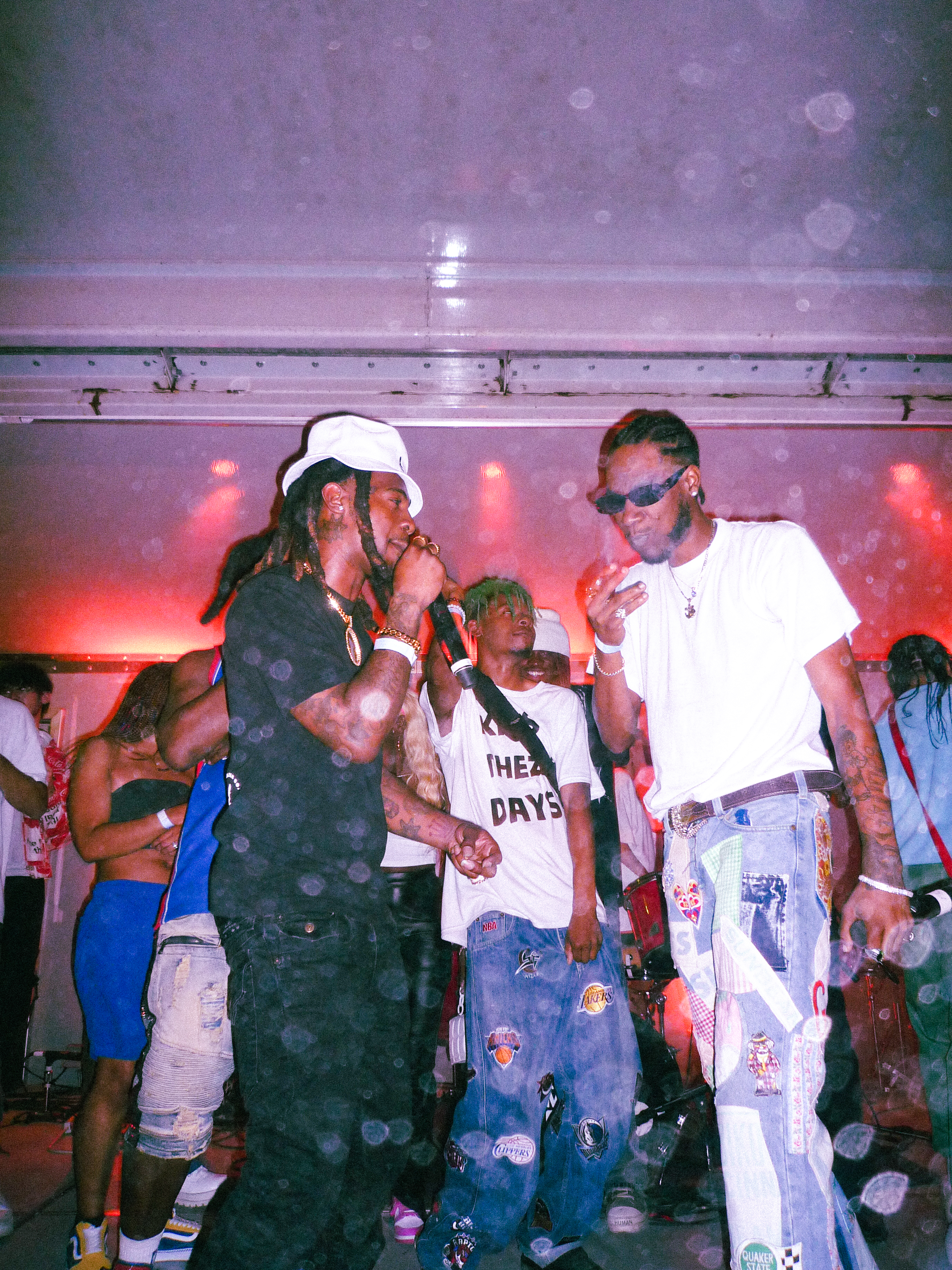What was The BIG Sho'?
Jahi:
The BIG Sho' was our first "music festival" and the stepping stone for our long-term festival concept. A culmination of everything since we started the label in 2018. It celebrated art, culture, creativity, community, and dedication.
The BIG Sho' was our first "music festival" and the stepping stone for our long-term festival concept. A culmination of everything since we started the label in 2018. It celebrated art, culture, creativity, community, and dedication.
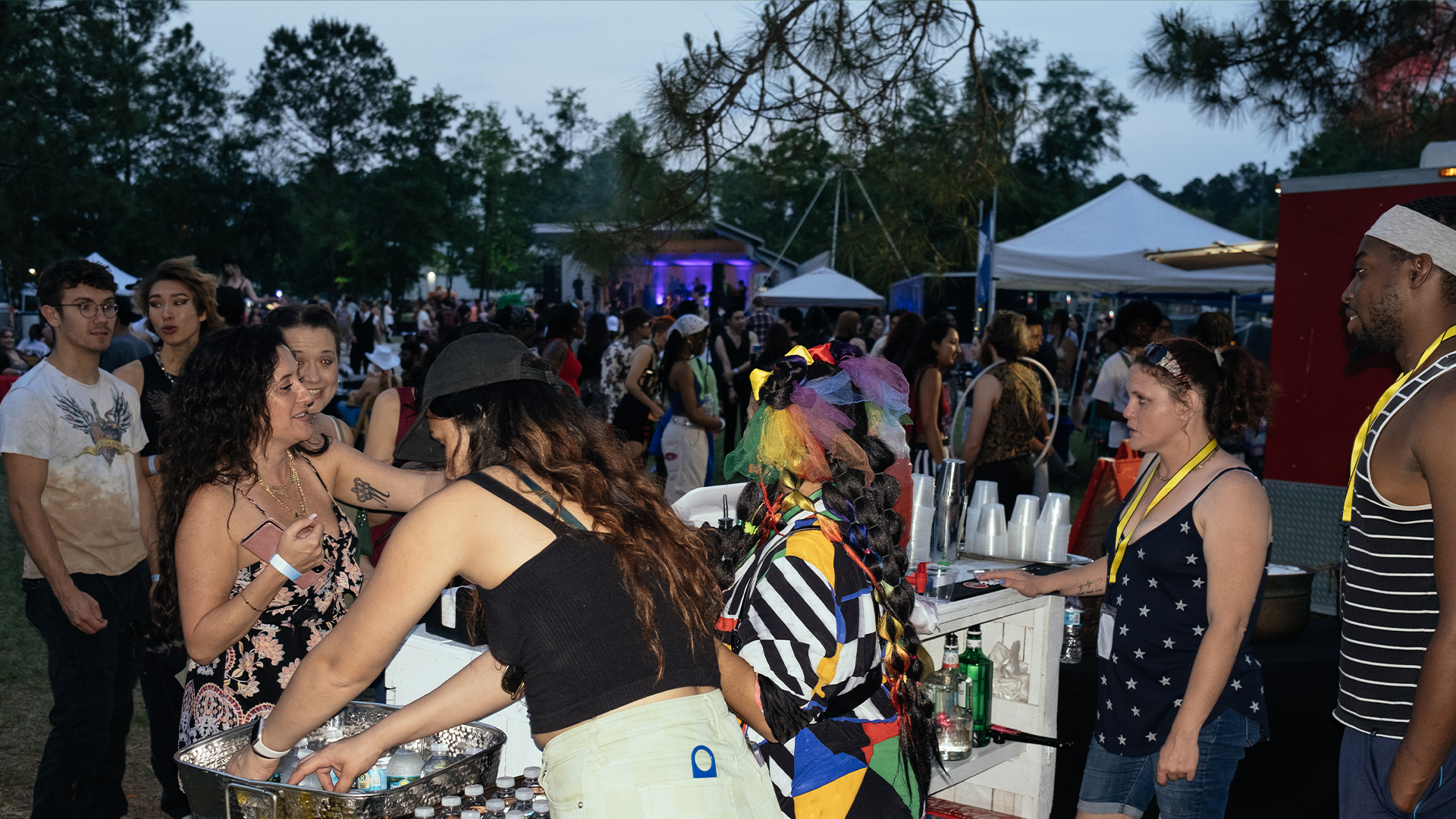
Where did the vision begin?
Laila:
We started Dion Dia to build community. One way we did that was by hosting events. We started with silent discos and house parties, bouncing around to different venues, creating unique experiences, and making new friends along the way. The events were vital because they created space for people to unite, express, connect, and inspire.
A music festival would do all of those things at scale, and showcase different forms of culture. We wanted to put all of the things we love that aren't necessarily mainstream, on a pedestal. And we wanted to do it in Gainesville, where there wasn't much representation of what we were passionate about. The festival was a big vision and goal because of the significant impact we knew it could make on our city and community.
Jahi:
Starting the music festival was not an easy goal. Many festivals don’t make money, and the logistics are very complex, but if you build with proper intent and dedication, it's possible to create something that stands the test of time, positively impacts its respective communities and economies, and maybe even earns a bit of money, eventually lol.
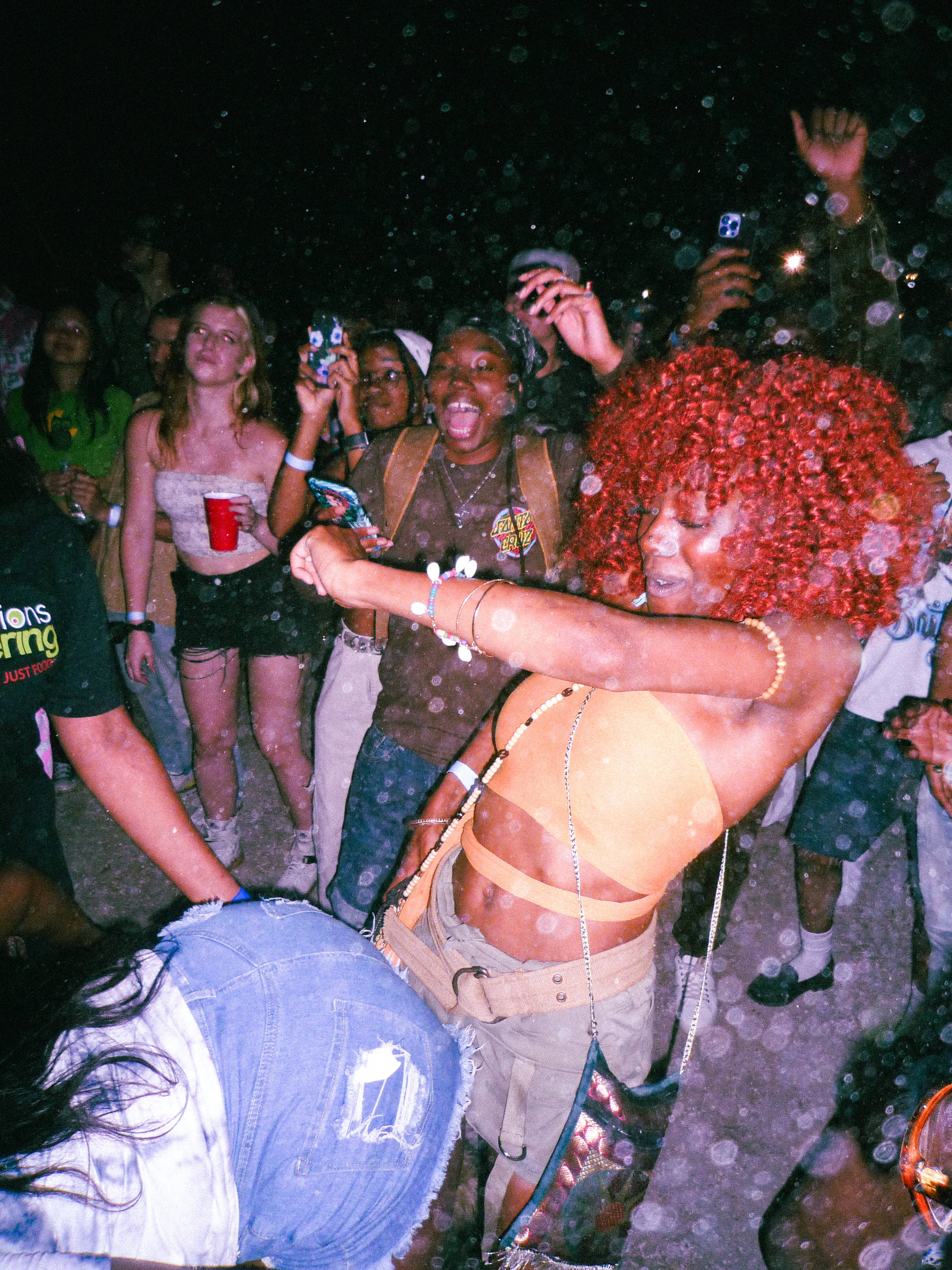
Why did you all incorporate a circus theme?
Laila:
The circus—the core of it, before it exploited people and animals—has always inspired me. The circus celebrates people for their weirdest and most unique parts. It honors and encourages our individuality. Once a year, the circus would come into your community, and if you felt isolated and misunderstood, it served as a reminder that you weren't alone — there are other creative, different people like you out there. The circus motivates you to continue being who you are and not conform to the masses or mainstream sentiments. It's those ideas that we wanted to incorporate into the festival.
The other reason we wanted to use the framework of the circus was the vibrant and unique aesthetics we could play into. We loved the idea of juxtaposing street culture with the circus, which you rarely see. We were mixing the two worlds. Many people from our community may have never experienced a circus, which helped us create a rare, new experience for the audience.
The circus—the core of it, before it exploited people and animals—has always inspired me. The circus celebrates people for their weirdest and most unique parts. It honors and encourages our individuality. Once a year, the circus would come into your community, and if you felt isolated and misunderstood, it served as a reminder that you weren't alone — there are other creative, different people like you out there. The circus motivates you to continue being who you are and not conform to the masses or mainstream sentiments. It's those ideas that we wanted to incorporate into the festival.
The other reason we wanted to use the framework of the circus was the vibrant and unique aesthetics we could play into. We loved the idea of juxtaposing street culture with the circus, which you rarely see. We were mixing the two worlds. Many people from our community may have never experienced a circus, which helped us create a rare, new experience for the audience.
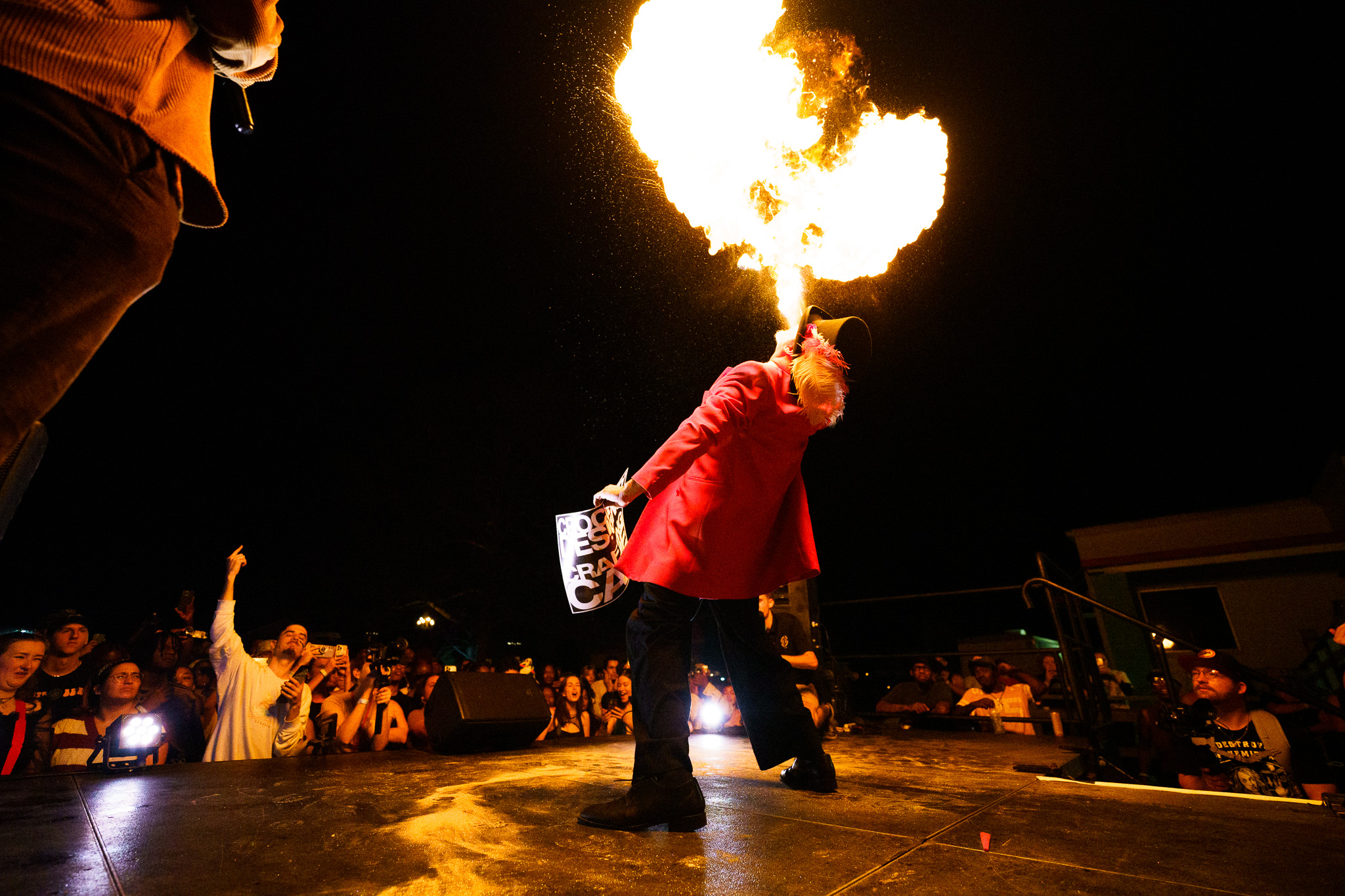
What was the workflow like?
Jahi:
The workflow was a lot of back and forth. And design-wise, we were at a bit of a standstill before deciding to commission a local illustrator and tattoo artist: Jordy (@tattoojord), to create a bundle of cartoon characters. The characters helped us start building out the identity of the event because the main thing when creating something new is that there are no reference points or content to work with. We had to figure out how we would present things.
What it looks, sounds, how it feels, what we're incorporating into the event, and why. But the branding, we got that rolling after we got those characters from Jordy. And we used those to build out this imaginary world we were looking to bring to life.
 Khary:
Khary:Exactly. We had to figure out how to represent a world that didn't exist yet visually. Not just any world either; a world that is robust, colorful, full of life, and meaning. This visual representation had to also translate to a diverse demographic. Not an easy feat, let me tell you. Using the assets that Jordy provided, we used our design skill sets to create layout variations and integrate the typography/branding elements. We had a lot of back and forth on design and layout decisions late night after late night; it felt like the revisions might never end.
Laila:
We were fortunate to have people who saw our vision and supported us since the beginning, really stepping in to assist and give their energy and attention to the project. We're forever grateful to friends who helped us with volunteers, researching hiring security, renting restrooms, sending emails, and being there the day of the festival. Putting everything together wasn’t easy, but doing it with friends who genuinely care about us and what we are doing made things a lot more possible. Seeing the contributions that everyone made was really heartwarming and very motivating. Huge shoutout and lots of love to the people that made this festival possible. Y'all know who you are.
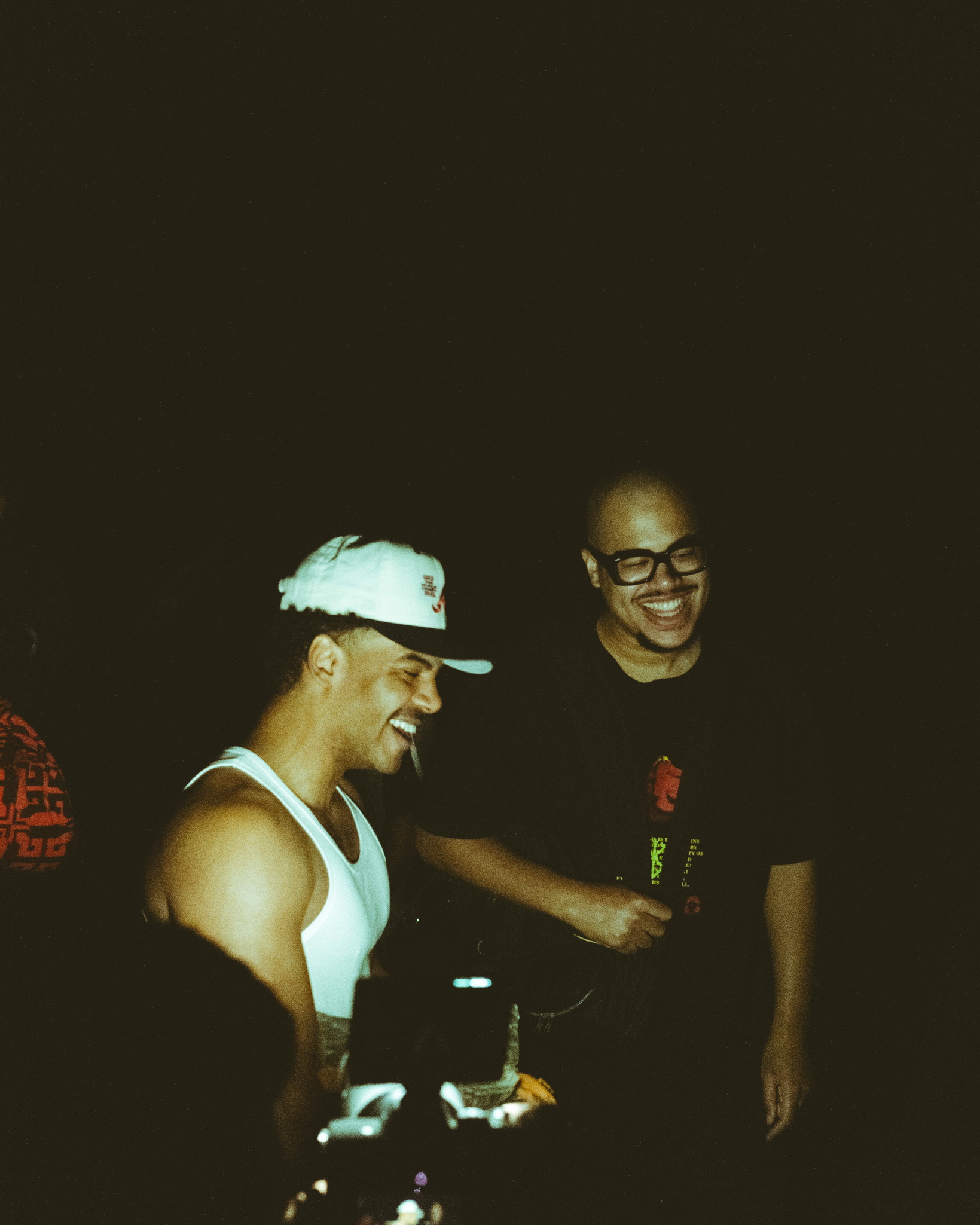


How did the lineup of performers come together?
Laila:
So we started working on the festival about three months out. An opportunity came up where Zack Fox clicked with our mission and what we had been working on in Gainesville. He wanted to come and support us by performing at The BIG Sho'. Once we got confirmation from Zack, that was it. His support gave us the push we needed to get started.
At first, I adamantly wanted to make The BIG Sho' Hip Hop and RnB music ONLY. It was really important because we know there isn't enough representation of hip-hop or street culture, and I wanted us to focus on uplifting that. But then, after thinking about it and talking with Jahi and Khary, I realized I needed to be more open-minded instead of cutting out so many other great genres of music and talented artists. First of all, that's not even the ethos of the record label; it's not the nature of our community or us to cut out eclectics and diversity. Our goal is to create spaces for all kinds of people to enjoy. So that's why we diversified the musical performances. And I'm glad that we did because it meant we got to share the experience of our inaugural festival with Nicole Miglis, Kaelin Ellis, Animal Prince, Ladyboy, Madwoman, Alyssa Thomas, RM13, Carson and other talented artists.
![]()
![]()
![]()
![]()
Jahi:
From the start, I was set on us creating a very eclectic and inclusive lineup. Hip-Hop and Rap will always play a role in most of what we do, but our interests and taste go far beyond a singular genre. And the last thing we want is to put ourselves in a box right out of the gate. I was pleased with how the lineup turned out and how well-programmed things were throughout the day. I'm excited for us to build on that foundation for next year's festival.
Khary:
The eclectic nature of the setlist was a highlight of the event for me. The scheduling had an excellent flow to it as well; Things started off sweet and smooth and gradually heightened in intensity. By the end of the day, we were all sweating, dancing, and screaming…prime for the appearance of the crowd control legend, Zack Fox. This climatic moment was coupled with a powerful act of nature, a random windstorm that sent dust and tents flying around. Alas, the show went on!
So we started working on the festival about three months out. An opportunity came up where Zack Fox clicked with our mission and what we had been working on in Gainesville. He wanted to come and support us by performing at The BIG Sho'. Once we got confirmation from Zack, that was it. His support gave us the push we needed to get started.
At first, I adamantly wanted to make The BIG Sho' Hip Hop and RnB music ONLY. It was really important because we know there isn't enough representation of hip-hop or street culture, and I wanted us to focus on uplifting that. But then, after thinking about it and talking with Jahi and Khary, I realized I needed to be more open-minded instead of cutting out so many other great genres of music and talented artists. First of all, that's not even the ethos of the record label; it's not the nature of our community or us to cut out eclectics and diversity. Our goal is to create spaces for all kinds of people to enjoy. So that's why we diversified the musical performances. And I'm glad that we did because it meant we got to share the experience of our inaugural festival with Nicole Miglis, Kaelin Ellis, Animal Prince, Ladyboy, Madwoman, Alyssa Thomas, RM13, Carson and other talented artists.

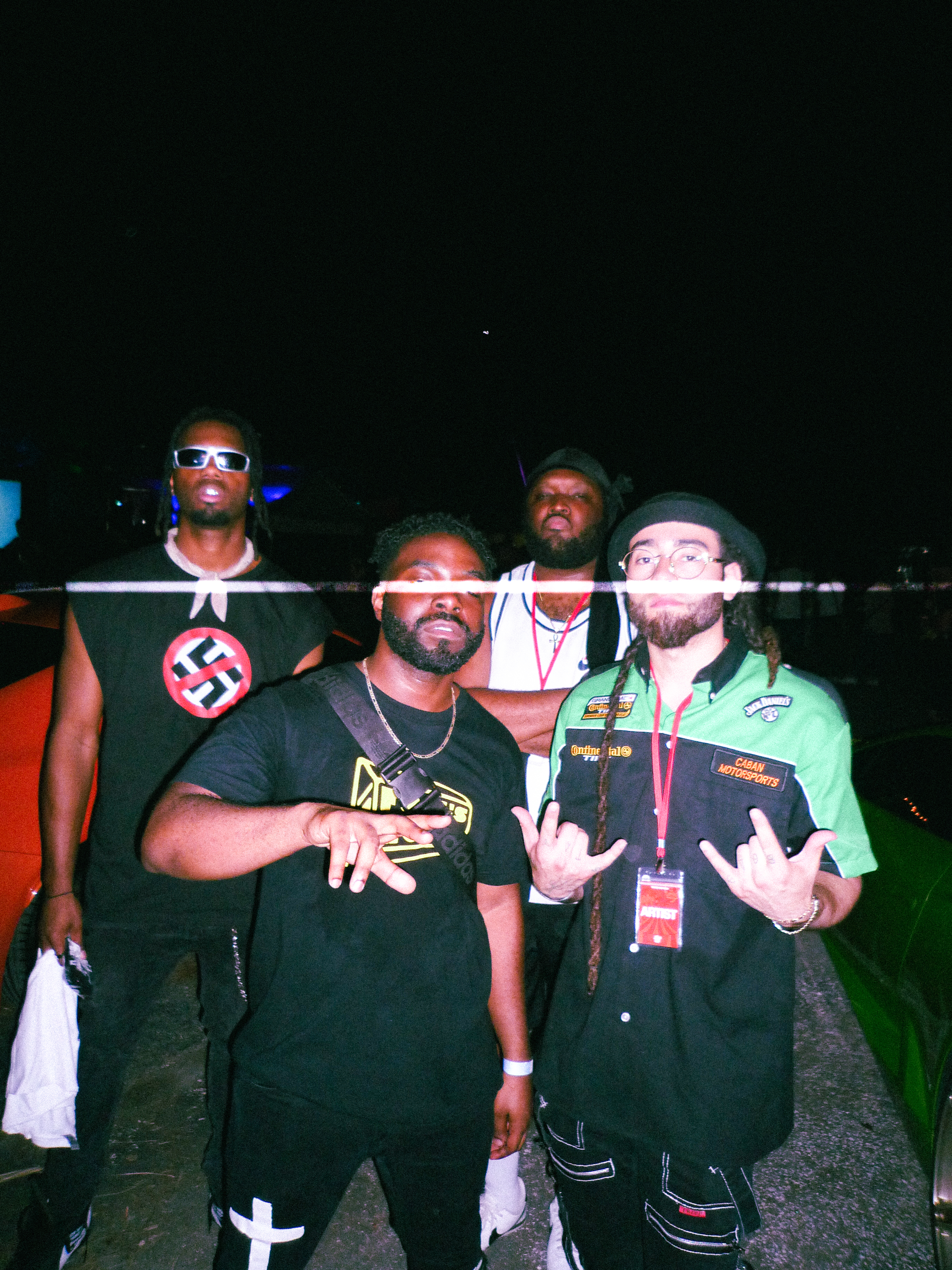


Jahi:
From the start, I was set on us creating a very eclectic and inclusive lineup. Hip-Hop and Rap will always play a role in most of what we do, but our interests and taste go far beyond a singular genre. And the last thing we want is to put ourselves in a box right out of the gate. I was pleased with how the lineup turned out and how well-programmed things were throughout the day. I'm excited for us to build on that foundation for next year's festival.
Khary:
The eclectic nature of the setlist was a highlight of the event for me. The scheduling had an excellent flow to it as well; Things started off sweet and smooth and gradually heightened in intensity. By the end of the day, we were all sweating, dancing, and screaming…prime for the appearance of the crowd control legend, Zack Fox. This climatic moment was coupled with a powerful act of nature, a random windstorm that sent dust and tents flying around. Alas, the show went on!
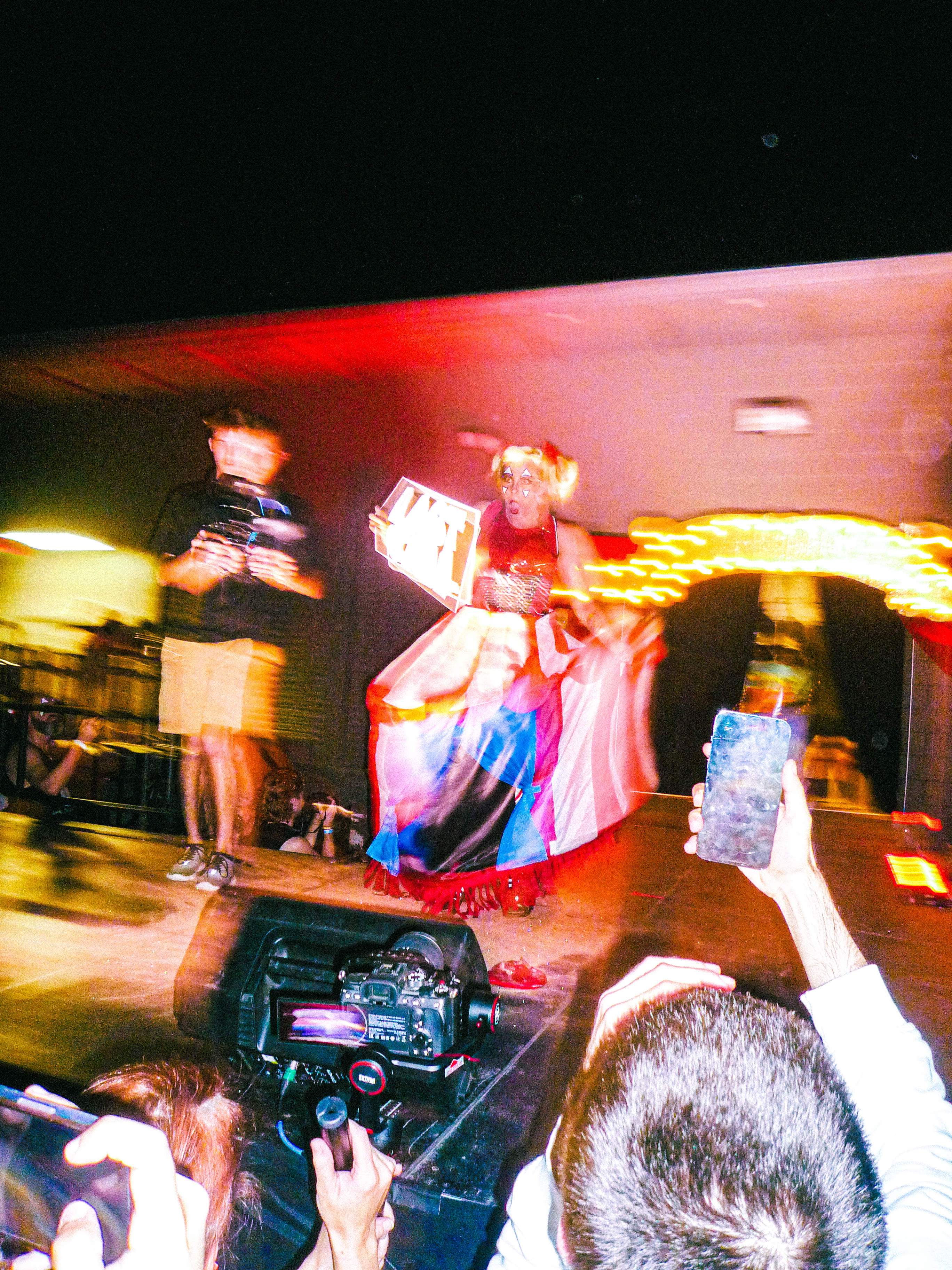
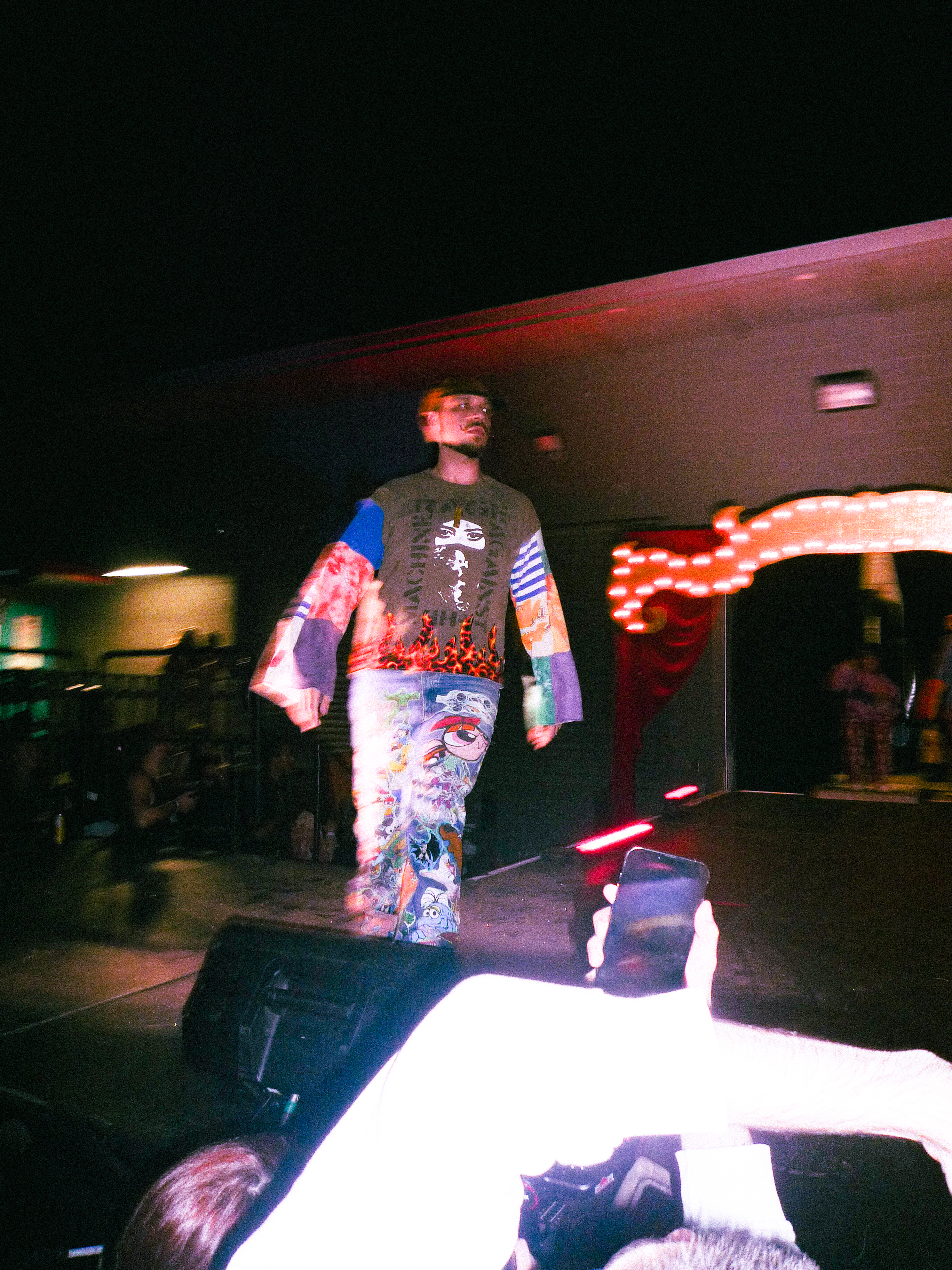
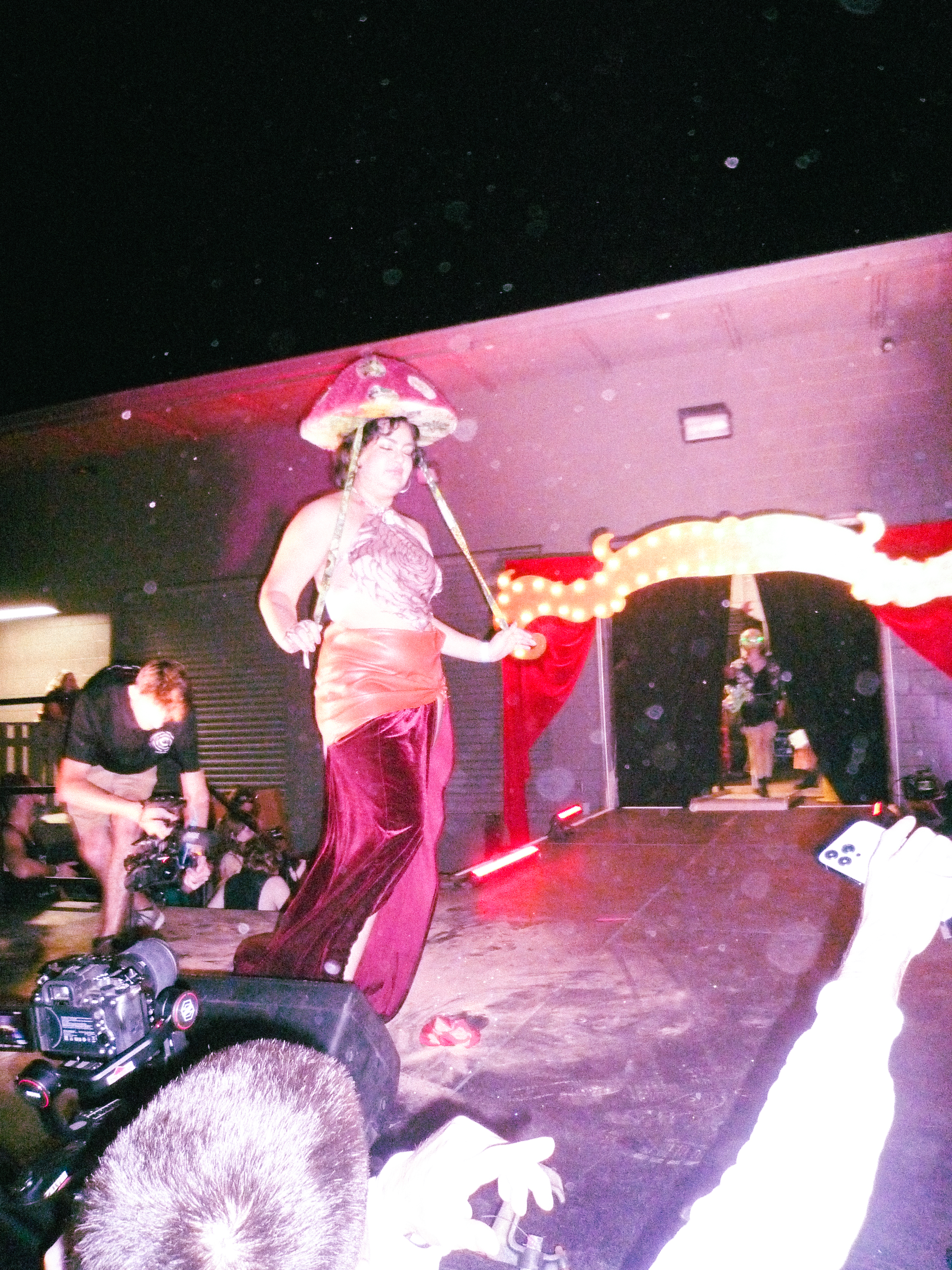
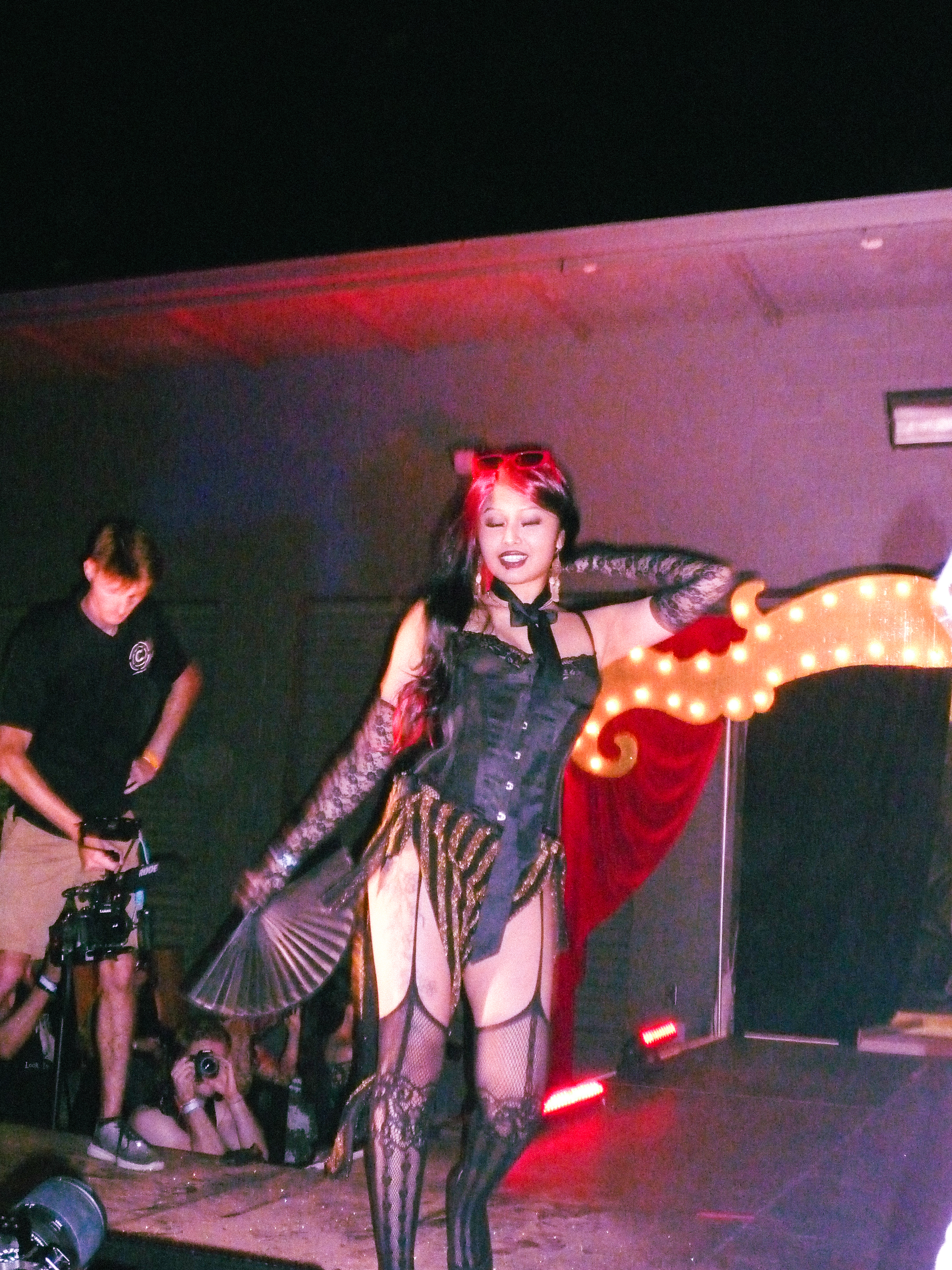
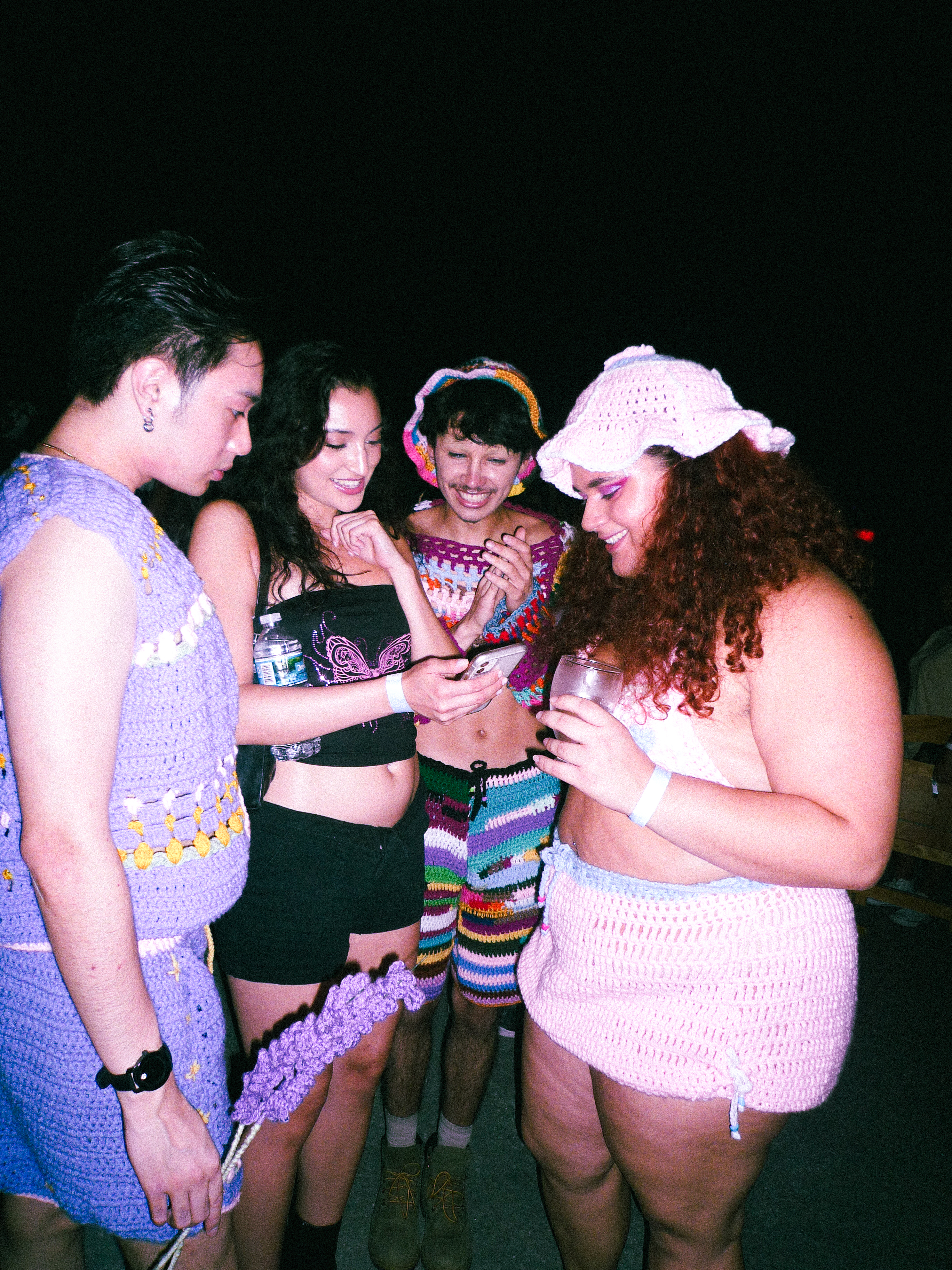
What were the successes?
Jahi:
The main success was that we pulled it off, and everyone seemed to enjoy themselves. From old to young, locals to out-of-towners, the people who have been with us since day one, and those who are just getting to know us and what we're up to.
Hosting 'The BIG Sho' felt like squatting 500 pounds 20 times. We exhausted ourselves. But at the same time, we built a solid foundation and blueprint for next year's festival.
Khary:
Another success was the content that we collected. We had the iamcreative team on-site gathering video footage the entire time. I was also running around with multiple cameras trying to capture as much as possible. Now, we have a stockpile of footage in our archives that we can work with to promote the next event. Creating inspiring content with it will be critical to the success of the next one.

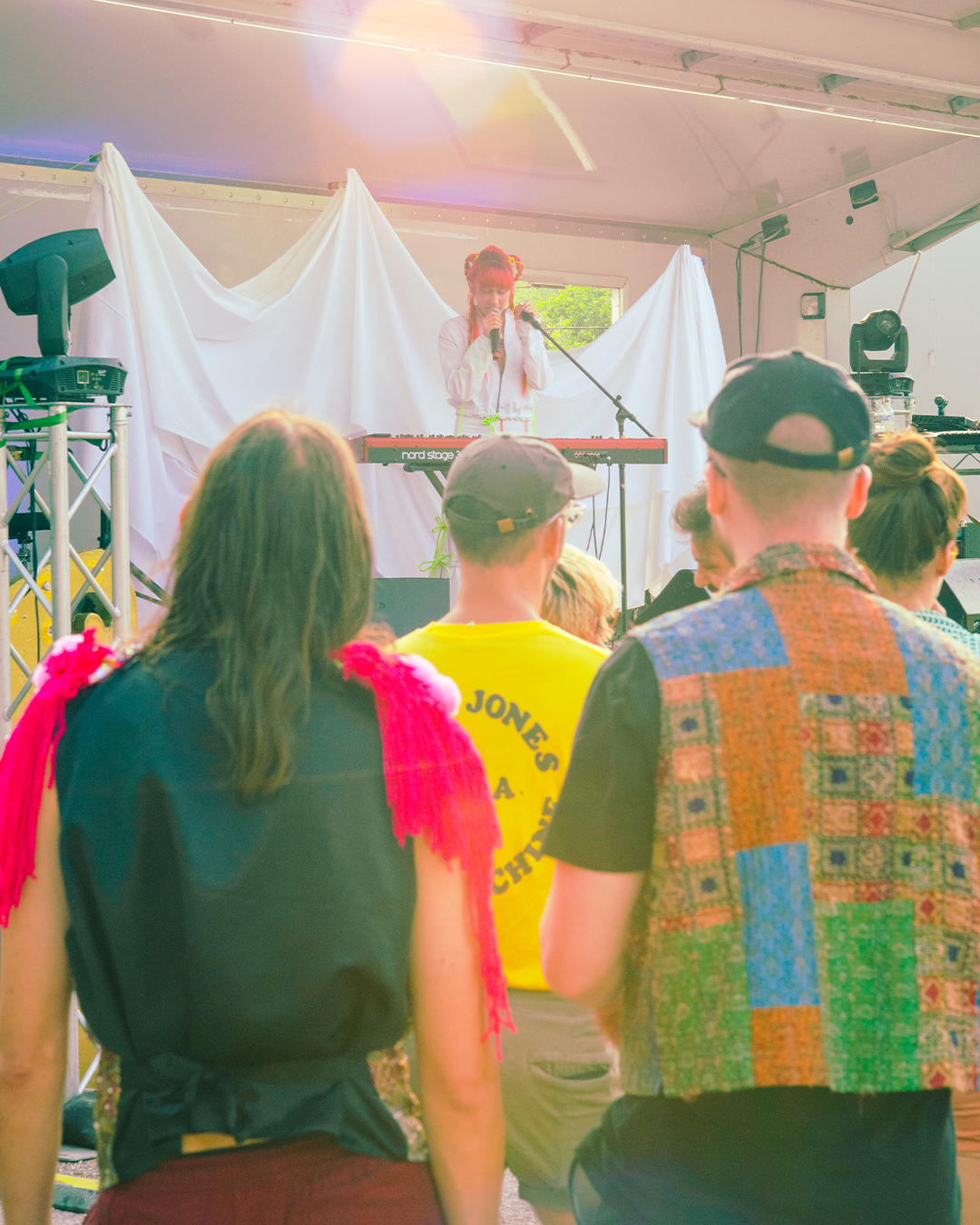
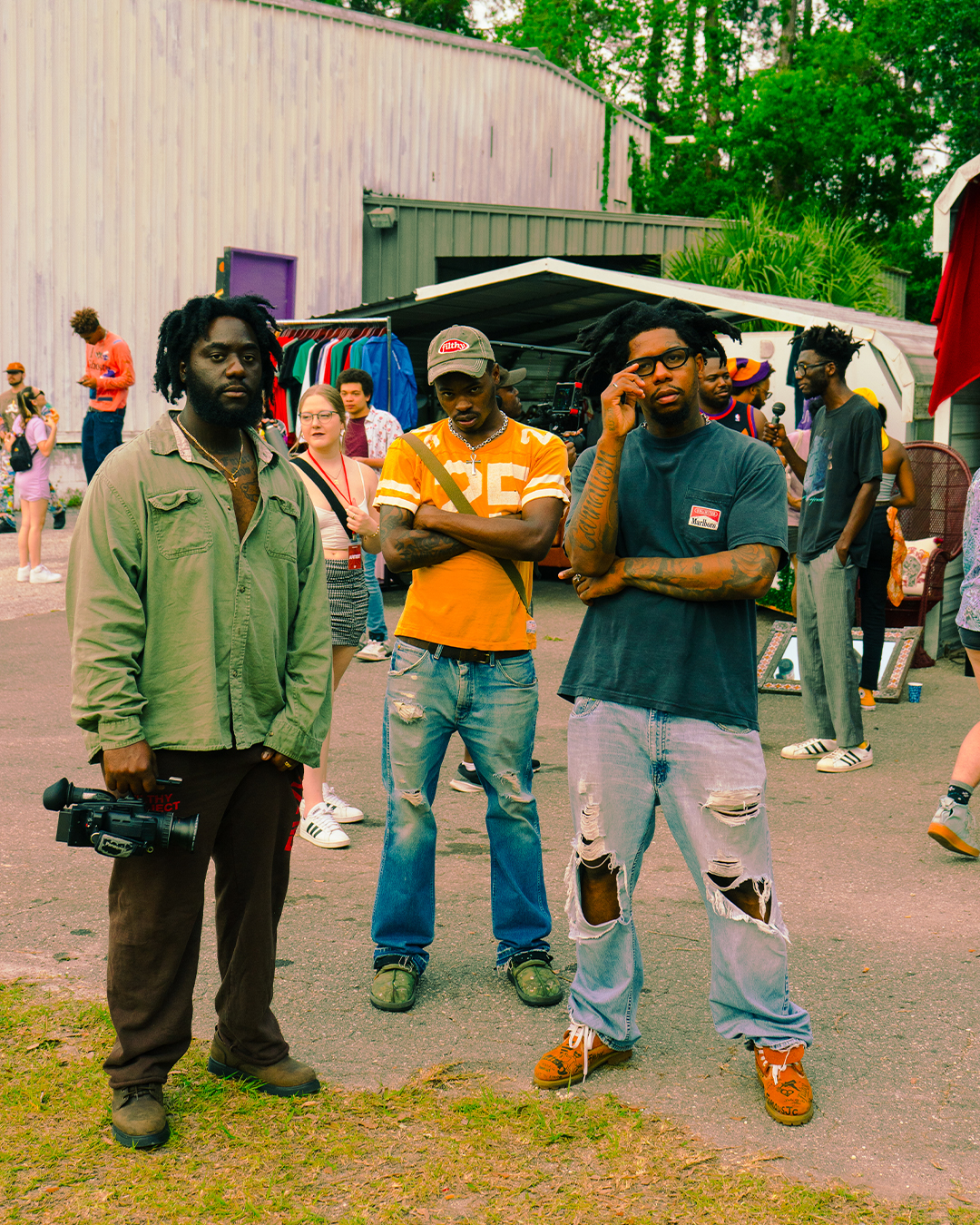


Laila:
One of the main successes I consider was that there were multiple times during the festival that I stopped and just did a 360 look around and saw that everyone in there looked completely different from each other. There were so many kinds of people — different ages, different backgrounds, different styles, all different types of people just enjoying their time together. That was cool. And it was amazing to see how seriously people took The Big Sho' and looked at it like an actual music festival from the beginning. People asked, "Yo, do I dress up like I do for EDC?" "Should I get there early?" Some people were out there all day, which tells much about the overall event.
Jahi:
Next year, we should see significant growth because there are a lot of people who heard about the event. And typically, when you do something for the first time, everyone is skeptical; no one wants to be the first person to try something. Everyone wants to see how it goes, and it went well.
And an enormous contribution to the event going well was the individuals, businesses, and organizations that trusted us and our vision enough to partner with us. We couldn't have done it without all of our partners: Sparc352, Sweetwater Branch Inn, Camellia Rose Inn, Visit Gainesville Alachua County, Celebrations Catering, Casa Lumbre & The Community Spirit Vodka, 3 Mavins, First Magnitude, Satchels, The Gainesville Fine Arts Academy, SpatiallyFed, and Feathr. Extremely grateful for everyone that has believed in and supported us.
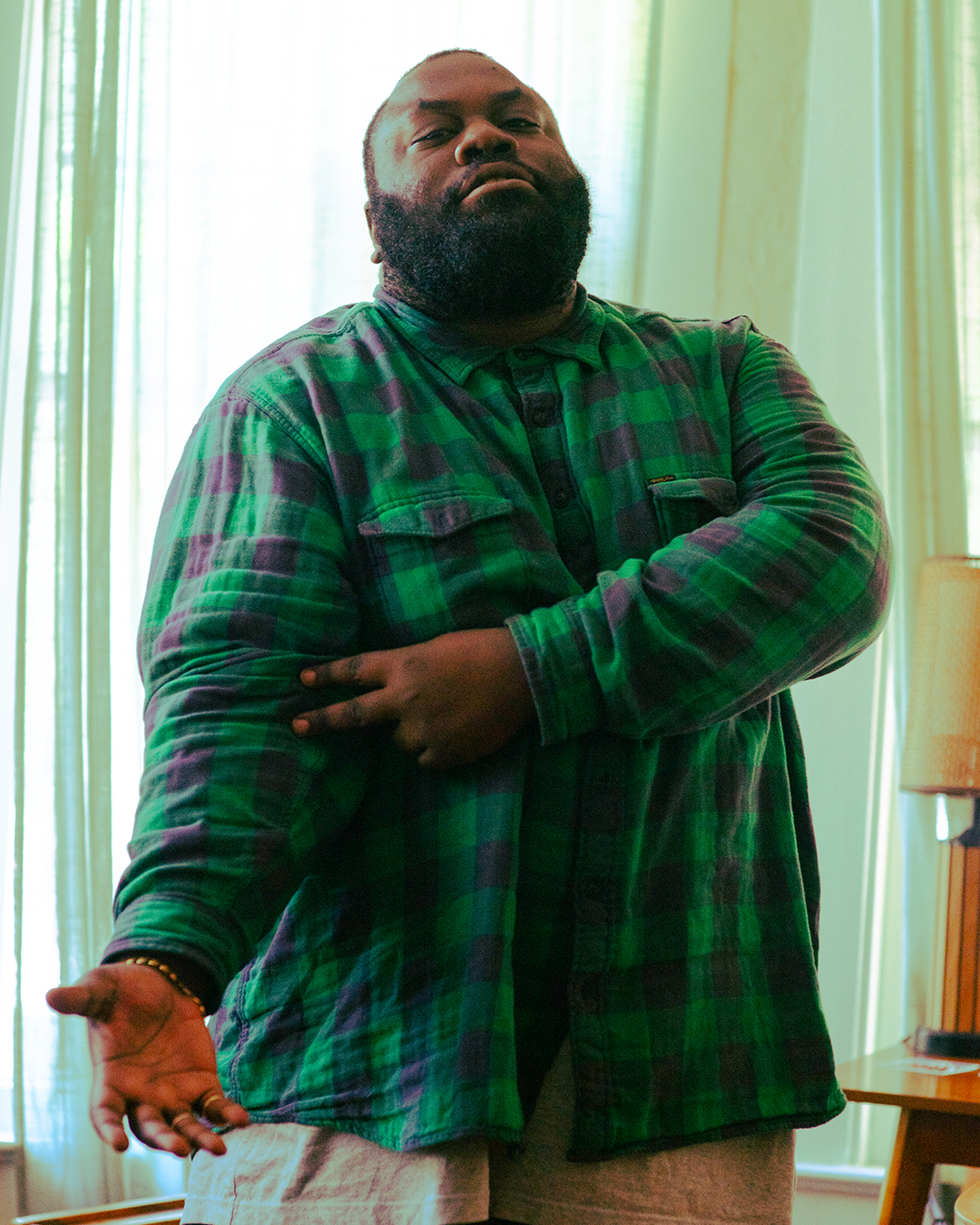
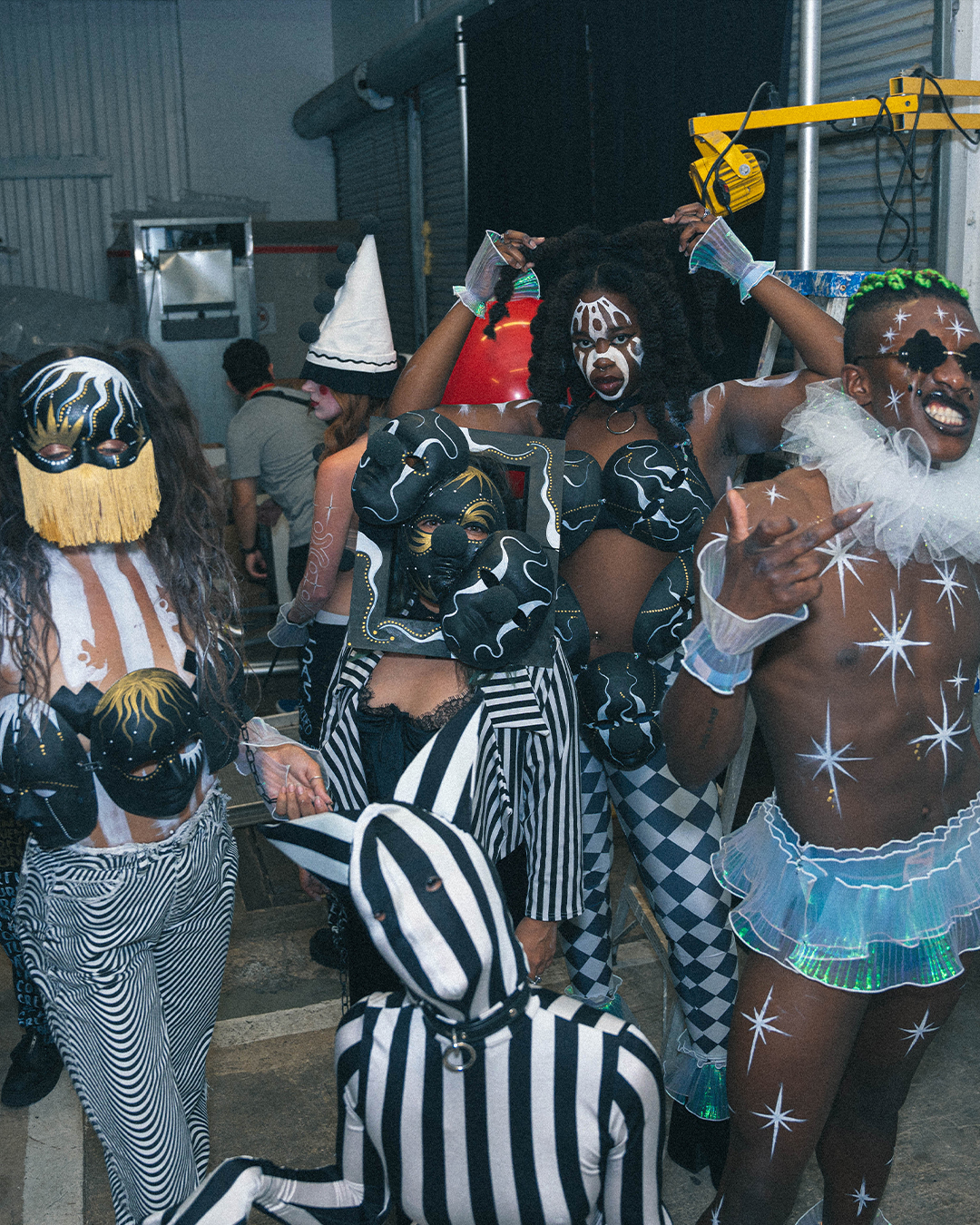
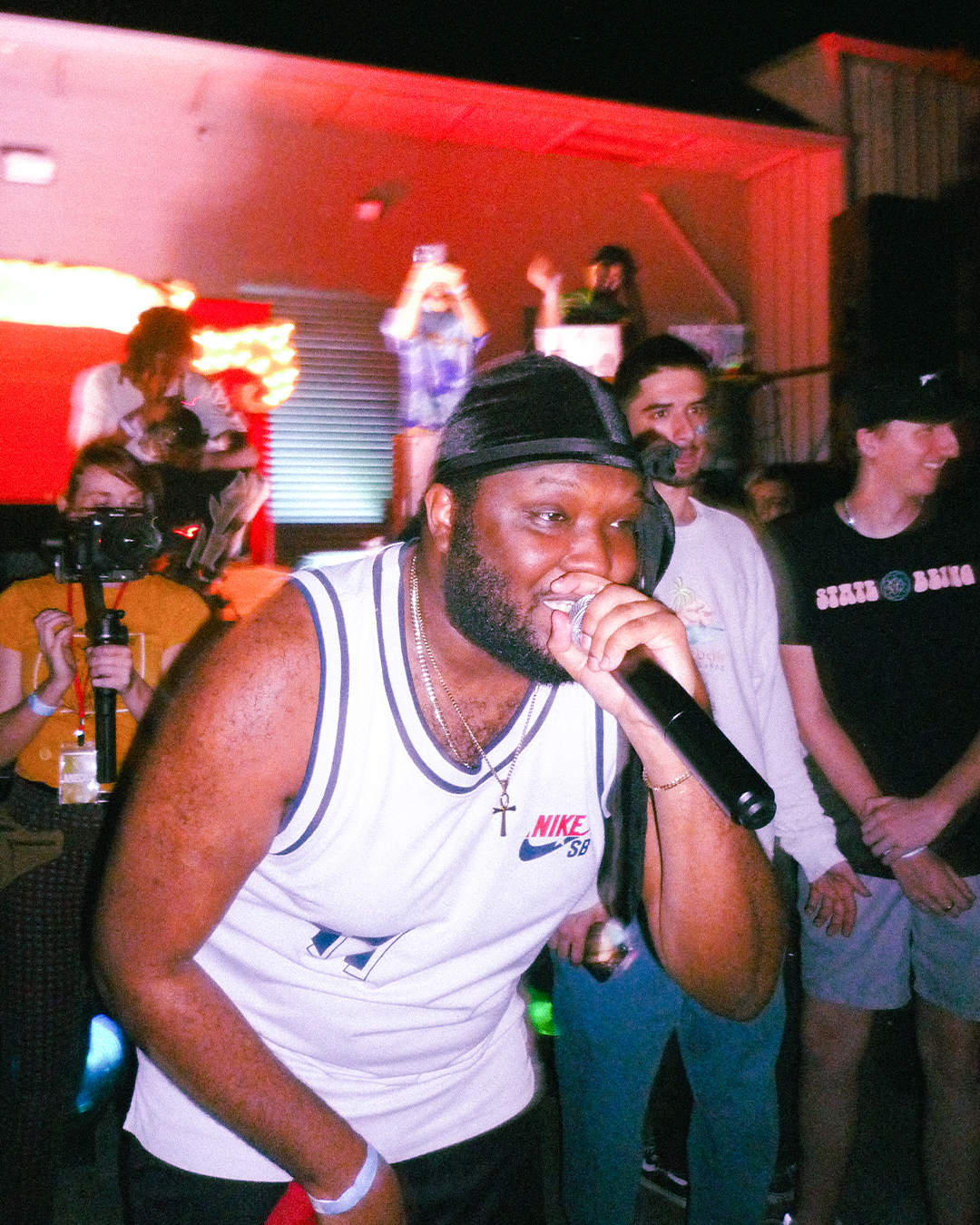
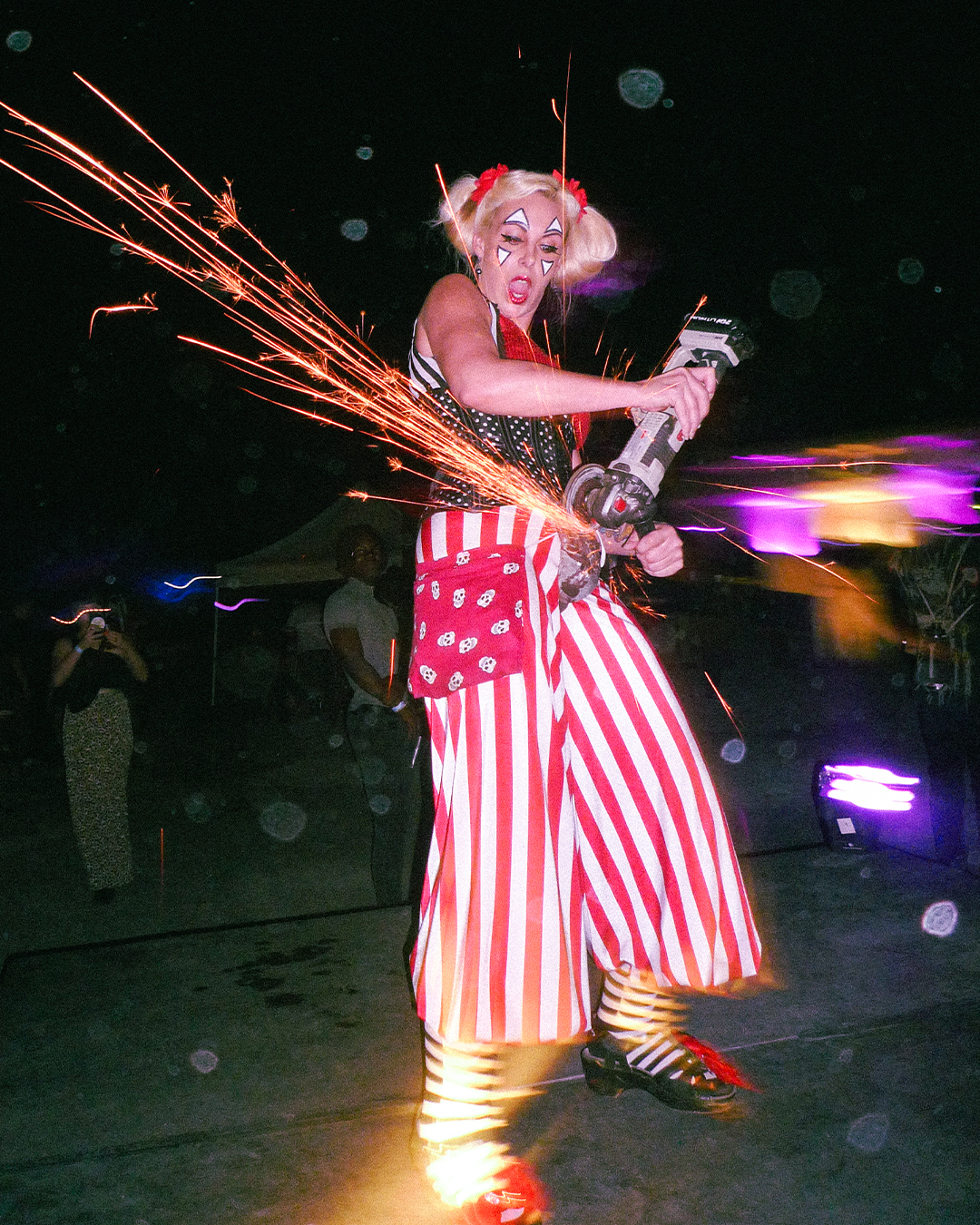
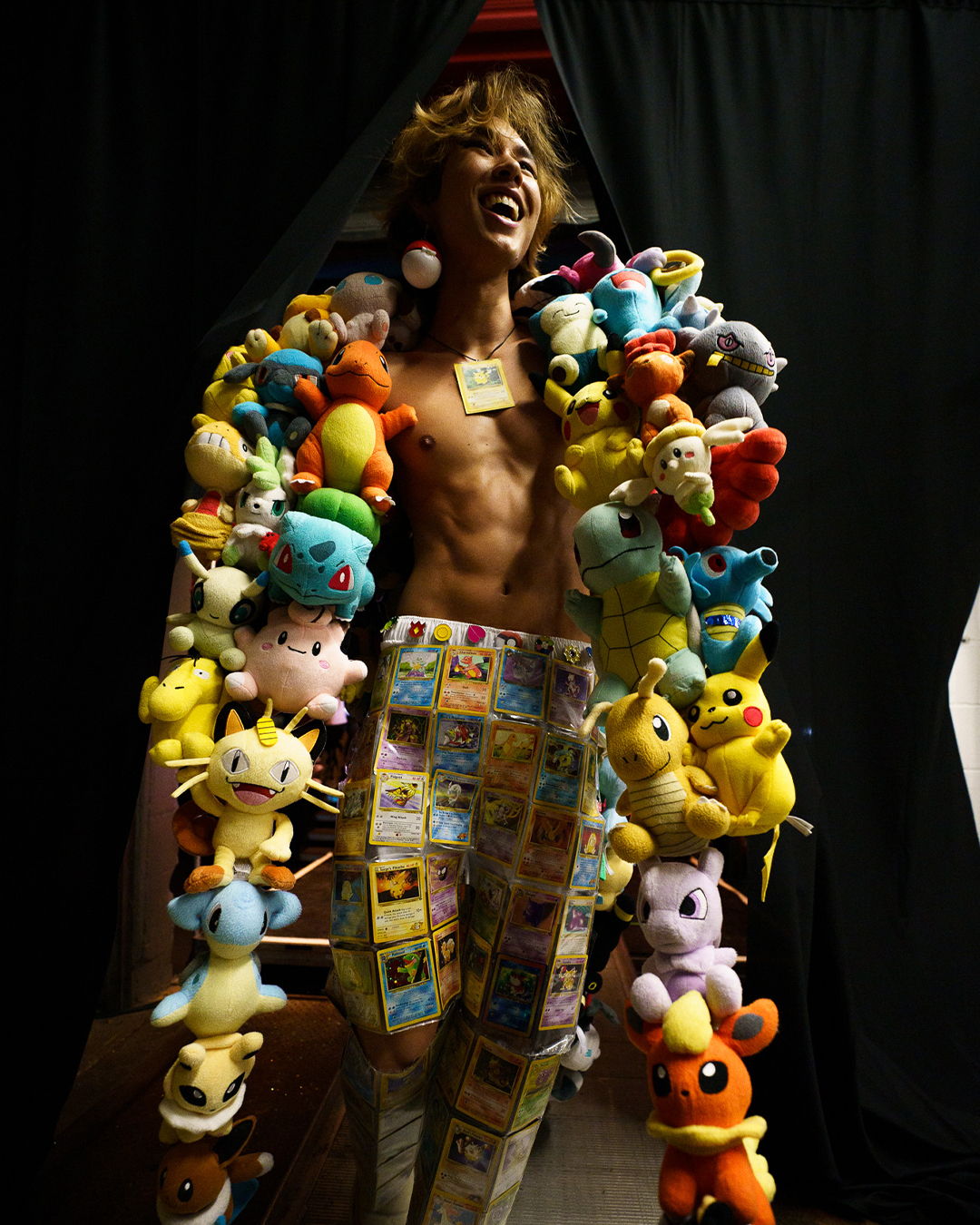
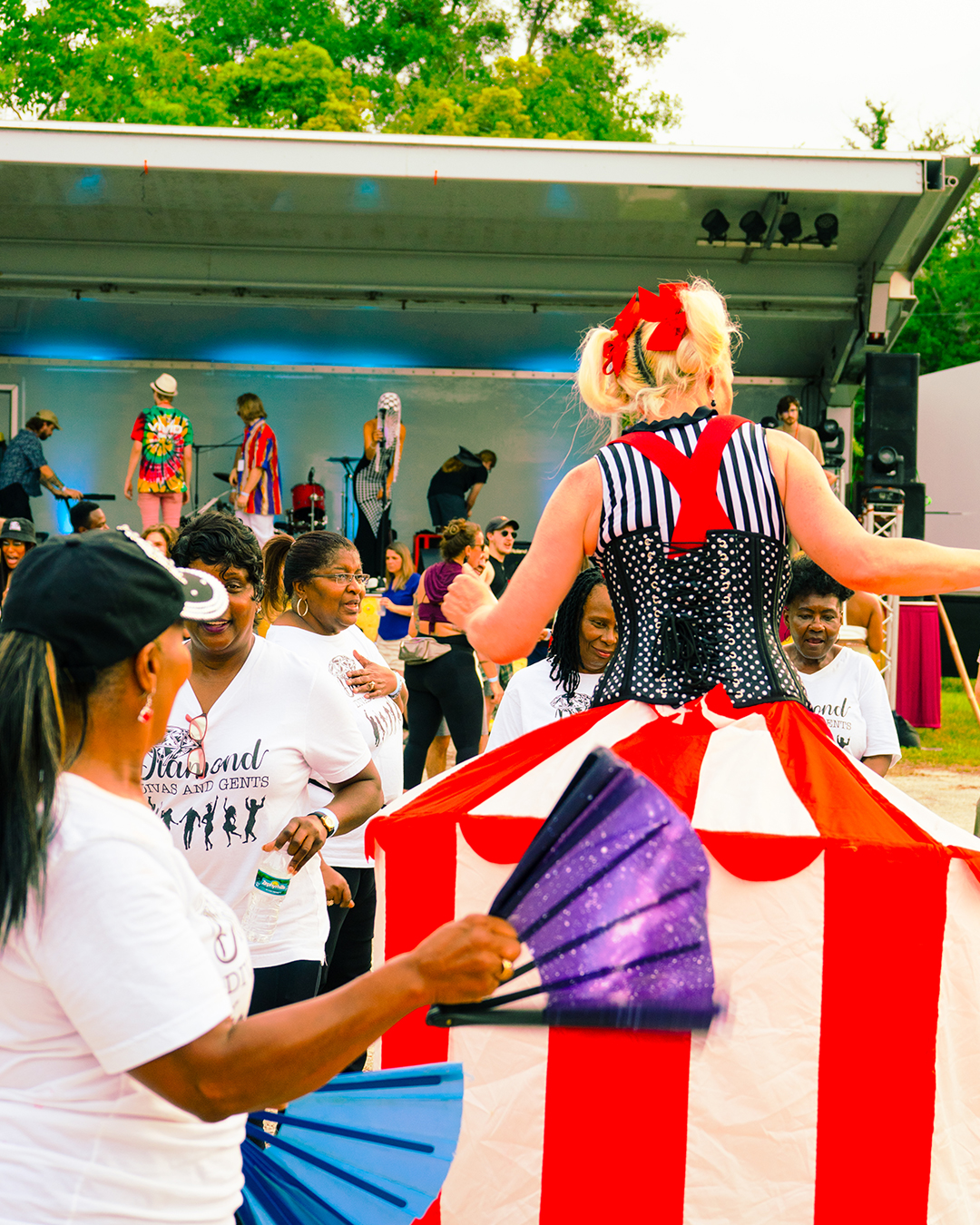
Challenges of The BIG Sho'?
Jahi:
Everything. All the challenges centered around doing something big for the first time. Something with a lot of moving parts, a lot of agreements to be formed, a lot of things to decide on, and many things to design, organize, and orchestrate. It was a learning experience all around—a crash course in creating a music festival. And we just had to go through it, live and learn, take the hits, get back up, and keep it moving because once we decided to do the event, there was no turning back. We had to move with the intent that the show would continue regardless of what happened. We learned a lot and became a better, stronger team.
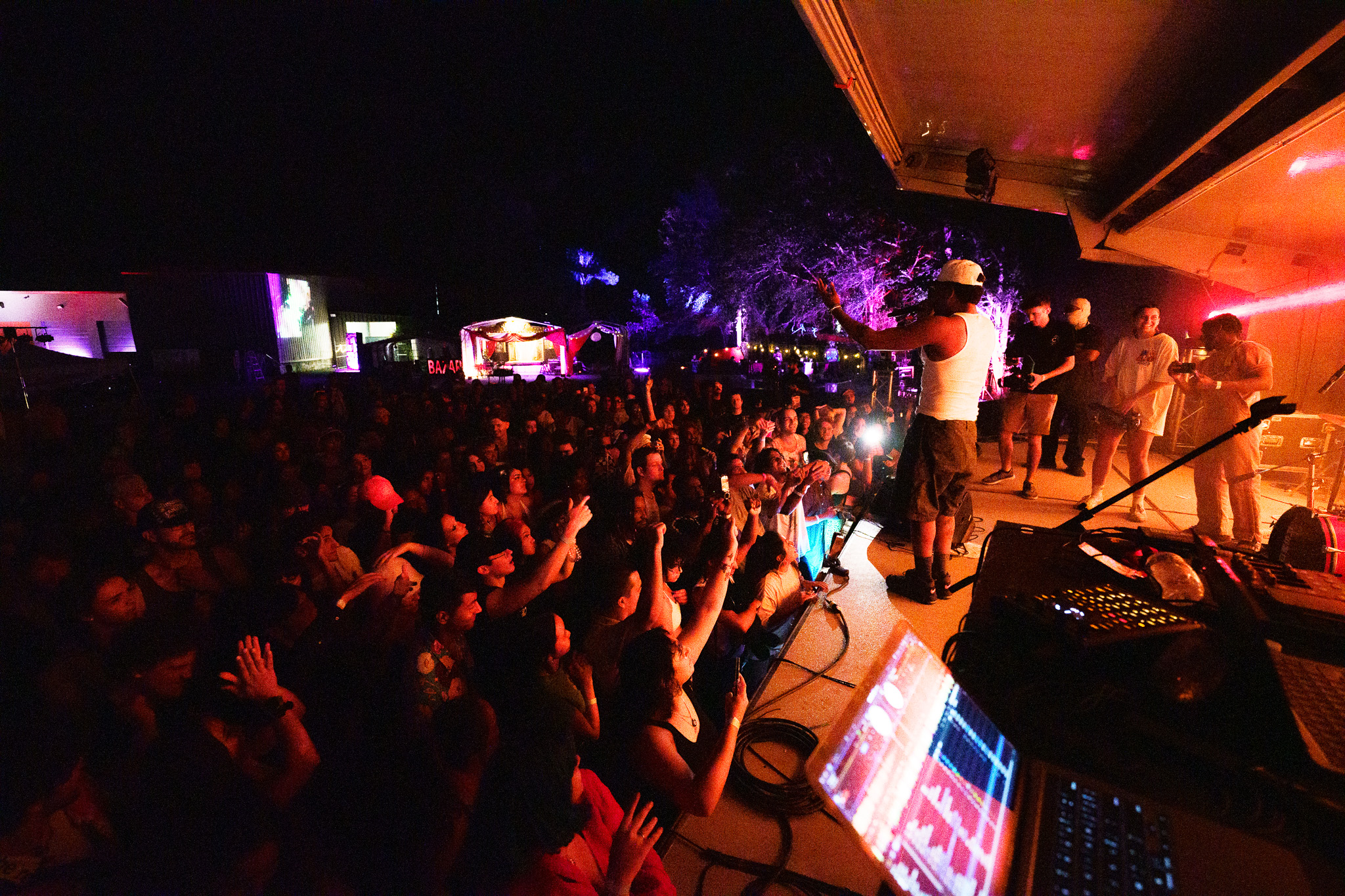
Laila:
Yeah, definitely a lot of anxiety leading up to it. A lot of nerves, not necessarily knowing what to expect. We had a vision, but we were still determining how things would come together. And one of the main challenges was not having everyone that we envisioned the dream with be there with us. It was tough. But yeah, how we all came together as a team was important. And it meant the world to see how people who have been super invested in the movement reached out with their support and their help.
What can people expect for 2024?
Jahi:
First and foremost, people can expect a rebrand of the concept and more clarity. The BIG Sho' was proof of concept for next year's Big Cultural Arts Festival. Music festivals are everywhere. What we're looking to create falls more in line with the idea of a Cultural Arts Festival. We want to create an event to showcase and promote many niche cultures and bridge the gap between communities. Music will always play a key role in BIG, but we don't want it to be the only or even the main draw. We want to work towards building an event, a world that feels like "culture."
Laila:
I'd also say that we can expect a bigger community around the festival. And really, community is what made all of this possible. People came together and believed in The BIG Sho', whether they were participating as performers, donating their time volunteering, or simply seeing the vision early and attending the first festival.
The community will keep growing, and that's been our dream since the beginning.
